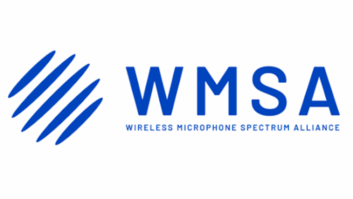Just last week, at an NAB session about FM chips in cellphones, a representative of the wireless industry told attendees that such mandates don’t work and generally are a bad idea.
Now the wireless industry has joined with the Consumer Electronics Association and the Recording Industry Association of America to voice support for a resolution in the House that specifically opposes government mandates for FM chips or “any terrestrial broadcast chip, in mobile devices including phones, smartphones and tablets.”
California Reps. Darrell Issa, a Republican, and Anna Eshoo, a Democrat, introduced H. Con. Res. 42, the “Creativity and Innovation Resolution.” The non-binding resolution also says that “compensating artists,” meaning performance rights, is essential to the U.S. maintaining its place as a global leader.
In the announcement from the RIAA, the industries say they recognize the “unique, cooperative and beneficial relationship between CE innovators, wireless companies and the music community.”
CEA President/CEO Gary Shapiro, already on record as opposed to a mandated FM chip, now states: “Requiring today’s digital phones to include an analog FM chip makes as much sense as requiring them to include a telegraph.”
Wireless companies and their handset manufacturers, both members of CEA, also oppose the mandate, though CTIA-The Wireless Association President/CEO Steve Largent said some of the many wireless devices in the U.S. do include FM chips. He said wireless companies allow customers to “customize their wireless experience through innovative streaming music services such as Pandora or downloading an indie artist’s app.”
At the Las Vegas convention, NAB officials said there’s a difference between a cell phone sporting a working FM chip, as many phones overseas do, and having an FM chip that’s not activated, as is often the case in the United States. NAB’s David Layer said the trade group could find just 27 phone models for sale in the Washington area that included activated FM chips. CTIA’s Brian Josef said at least 41 cell phones sold in this country have that feature.
Opponents of the FM chip mandate say consumers aren’t clamoring for the feature. Supporters say consumers aren’t even aware of the option because stores and wireless carriers don’t highlight it.
Meanwhile, an effort to get an HD Radio chip in cell phones is underway; we reported that NAB FASTROAD is funding an effort by iBiquity Digital, Emmis Interactive and BIA to produce a prototype SiPort chip to integrate into a cell phone. The company specializes in small, power-efficient HD Radio chips.
During that session, Emmis President/CEO Jeff Smulyan predicted the industry will get FM chips in phones, mandate or not.
— Leslie Stimson







